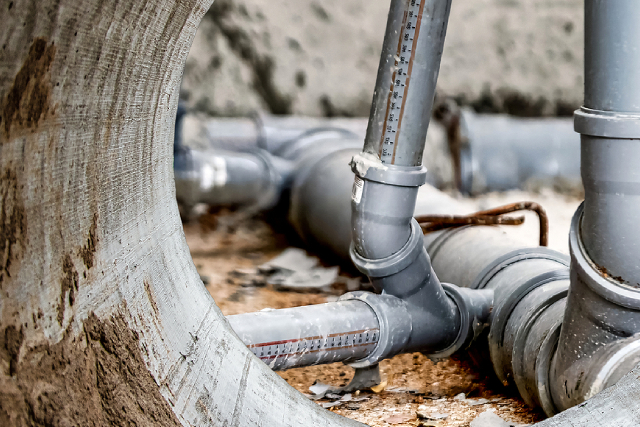
25 May Everything You Need to Know About UPVC Soil and Waste Pipes
UPVC (Unplasticised Polyvinyl Chloride) soil and waste pipes are commonly used in plumbing systems for the conveyance of sewage, rainwater, and other waste fluids. These pipes exhibit remarkable versatility and are utilised in diverse applications, such as underground drainage systems, hydroponics, and electric conduits in Singapore.
Let’s delve into the key features of UPVC pipes that distinguish them from other options:
- Durability
UPVC pipes are highly durable and resistant to chemical corrosion, making them suitable for carrying various waste fluids without degradation or damage over time.
- Non-Reactive
UPVC is an inert material, meaning it does not react with the substances it carries. This property ensures that the pipes maintain their structural integrity and do not contribute to any chemical reactions or waste contamination.
- Smooth Interior
UPVC pipes have a smooth interior surface, facilitating the smooth flow of waste materials. The absence of roughness prevents the accumulation of debris, waste particles, and other materials that could cause blockages or hinder the flow.
- Lightweight
UPVC pipes are relatively lightweight, making them easy to handle and install. This characteristic is particularly advantageous during construction and plumbing installations.
- Longevity
UPVC pipes have a long service life and can withstand harsh environmental conditions. They are resistant to UV radiation, weathering, and degradation, ensuring their durability even when exposed to sunlight and outdoor elements.
- Noise Reduction
UPVC pipes possess good acoustic properties, reducing the noise generated by flowing waste and water. This feature is particularly beneficial for buildings where noise reduction is desired, such as residential areas.
- Cost-Effective
UPVC pipes are generally more affordable compared to materials like cast iron or copper. Their cost-effectiveness, coupled with their longevity and low maintenance requirements, makes them a popular choice for soil and waste pipe systems.
Due to their numerous advantages, it is unsurprising that UPVC (Unplasticised Polyvinyl Chloride) pipes are widely preferred for waste management in both residential and commercial properties. However, distinguishing between the two is essential for establishing a reliable and effective waste plumbing system.
What are Soil Pipes?
Soil pipes or vent pipes are piping solutions that carry waste away from a house or building. They are typically attached to a pan connector that connects to a sink, bath, or toilet, and runs down the side of a structure and connects to an underground drainage system. These pipes are vented through the roof to better release unwanted smells to assist with aerobic sewage digestion.
What are Waste Pipes?
On the other hand, waste pipes convey wastewater from household appliances into the trapped gully and soil stack before connecting the drainage system. Unlike soil pipes, waste pipes do not have to be above ground level since wastewater does not produce harmful gasses. Appliances like sinks, washing machines, showers, and bathtubs all require waste pipes to ensure the wastewater they produce is removed efficiently. These pipes connect appliances from the trap to the main soil stack and enable wastewater to flow to the sewage system, where it gets drained.
Differences Between Soil Pipes and Waste Pipes
While soil pipes and waste pipes do the same job of carrying waste away from the property and into the sewer, there are a few distinct differences between them. Waste pipes generally have a smaller diameter than soil pipes and are used exclusively for appliances that use water, like sinks and showers, rather than soiled waste. In addition, waste pipes are often narrower in size since they only need to carry water and do not require a venting system like soil pipes do.
Knowing which type of waste pipe to use prevents flushing waste materials down the wrong drain. For instance, removing waste from a toilet via a waste pipe will produce foul smells that will offend anyone nearby. Soil pipes are more suited for this purpose because they are vented differently than the standard waste pipes, which are typically on the roof of the structure to allow methane and other gases to escape into the air without lingering.

Conclusion
Soil and waste pipes are responsible for removing waste from a property, and it is important to know the differences between them to develop the right waste management system. Hopefully, the contents above have shed light on what separates them in terms of form and function so you can better decide which ones you need for your application.
If you require robust and sustainable UPVC soil, waste, and vent fittings in Singapore, Vicplas is here to help. We specialise in eco-friendly and BCA-SGBC Green Mark recognised piping solutions used across various applications, from civil engineering works to hydroponic systems in Singapore. Don’t hesitate to contact us today for more details about our ISO-certified UPVC pipes and fittings.
